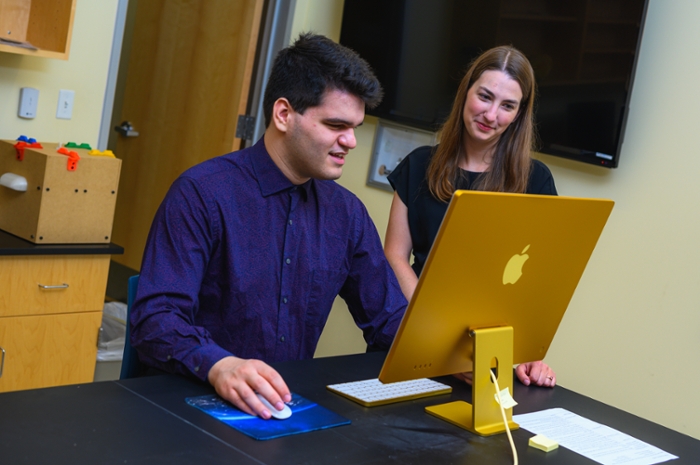
Download Image: Web
Lycoming College today announced the launch of a new academic program in biophysics, a highly interdisciplinary major gaining traction around the country yet rarely found at smaller institutions. Studies in biophysics will help Lycoming students understand how the principles of physics can be applied to biological systems, opening doors to careers in a wide array of fields including scientific research, healthcare, biomechanics, biomedical engineering, medical physics, kinesiology, and more.
At the intersection of biology, physics, and chemistry, Lycoming’s new program in biophysics leads students to develop a diverse skillset and teaches students to problem-solve. Students can customize their major to focus on the physics of smaller-scale microbiology or the mechanics of larger-scale biological systems. Similar to other STEM offerings at the College, biophysics students will have opportunities to collaborate on faculty-led research projects, and to present findings at regional and national conferences. In addition, students will be well-positioned to compete for valuable internships as well as Research Experiences for Undergraduates (REU) funded by the National Science Foundation.
As a small liberal arts college, Lycoming values small classes that enable individual attention from professors and a personalized education experience, and the new biophysics major is no exception. Close student-faculty mentorship leads to personal growth and professional development for students.
“Working as a biomechanist, I’ve seen how much a strong foundation in physics gives researchers an advantage in diverse areas of biological research from studying how salamanders catch food to cutting-edge prosthetic design. This program represents the kind of training I wish I’d had in undergrad,” said Mary Kate O’Donnell, Ph.D., assistant professor of biology.
“Some of the most interesting science problems are found in the overlap between fields,” said Emily Wilson, Ph.D., assistant professor of astrophysics. “Astrophysics, biophysics, computational physics, you name it. These majors are widening our historical understanding of ‘physics’ and allowing students to make connections across disciplines.”
Students majoring in biophysics will be prepared to either pursue graduate studies or to enter the workforce in a variety of careers ranging from teaching to industrial research and positions in government labs. Students with an eye toward engineering careers will benefit from Lycoming’s partnership agreement with Washington University at St. Louis for a 3+3 ABET accredited master’s degree in Engineering.
More information on biophysics at Lycoming is available at https://www.lycoming.edu/biophysics/.